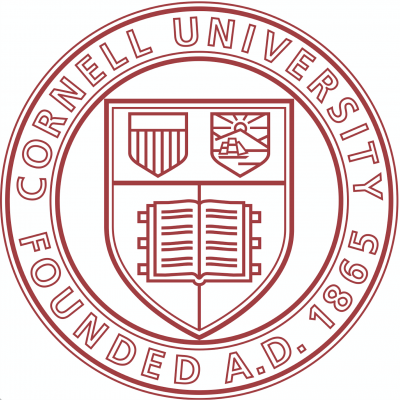Highlights from Announcements 10/29/18

‘A Voice at the Table’: Graduate Students on Governance
“Everyone had a voice at the table,” said Motasem Kalaji, a doctoral student in communications, about his first meeting as the newest representative on the General Committee. This committee, the governing and oversight body of the Graduate School, is composed of faculty, students, and deans.
Although listening to student input is not a new phenomenon in Cornell’s model of shared governance, the General Committee allows students not only to voice opinions at meetings, but also cast a vote equal to that of the committee’s administrators and faculty representatives.
“Physically sitting at the table in General Committee meetings, reading academic program proposals and debating academic appointments alongside faculty and administrators – and having my vote, and the opinion of graduate students, count for something – validates my feelings on the benefit of student involvement in this system,” said committee member Rebecca Harrison ’14, a doctoral student in science and technology studies.
Nurturing an Inclusive Climate for Teaching and Learning
Recent acts of violence in this country and elsewhere have affected members of our community. As a teaching assistant or mentor for undergraduate students, you may have questions about how you can respond meaningfully to incidents that affect the climate for teaching and learning at Cornell.
Below is advice on how to respond to incidents that affect the climate for teaching and learning on campus from the Center for Teaching Innovation.
In an event of an incident that can impact the climate for teaching and learning (e.g. bias incidents on campus, national and global events), consider ONE or more of the following actions (choose a response that you are comfortable with):
- Take a minute at the beginning or end of class to acknowledge what happened and the impact it has on our community (students, faculty and staff); you can refer to the news, a message from others, etc. this can be a sentence or two.
- Encourage your students to seek support from each other, campus resources, and family and friends.
- Share resources for impacted individuals (campus offices) and those who wish to support them (e.g. intergroup dialogue).
- Acknowledge that not everyone is impacted in the same way.
- Ask students to consider their place in Cornell’s community, and what they can do to contribute to making Cornell more welcoming and affirmative of targeted students.
- Ask for a moment of silence to hold the space and affirm those who are targeted.
- Consider lightening the cognitive load in class (e.g., offer review sessions, extend timelines/due dates, etc.) as students work through their responses to the incident, which for some will be significant. Moments like these can have an adverse effect on learning.
- If you’re comfortable, facilitate a short write-pair-share exercise. Allocate about 3 minutes to write individually, ask students to pick a discussion partner, and then ask each person to share for about 3 minutes. Writing prompts might be, “What has the impact of this incident been on you? What do you think the impact has been on your peers?”
Resources for students include:
- Cornell Health 24/7, Counseling & Psychological Services (CAPS) (607-255-5155)
- EARS (Empathy, Assistance and Referral Service) (607-255-3277)
- Ithaca’s Suicide Prevention and Crisis Service 24/7, call (800-273-8255) or text (607-269-4500)
- Caring Community
- Dean of Students Office
- Learning Strategies Center
- The Intergroup Dialogue Project
- Office of Academic Diversity Initiatives (undergraduate students)
- Office of Inclusion and Student Engagement (OISE) (Graduate students)

